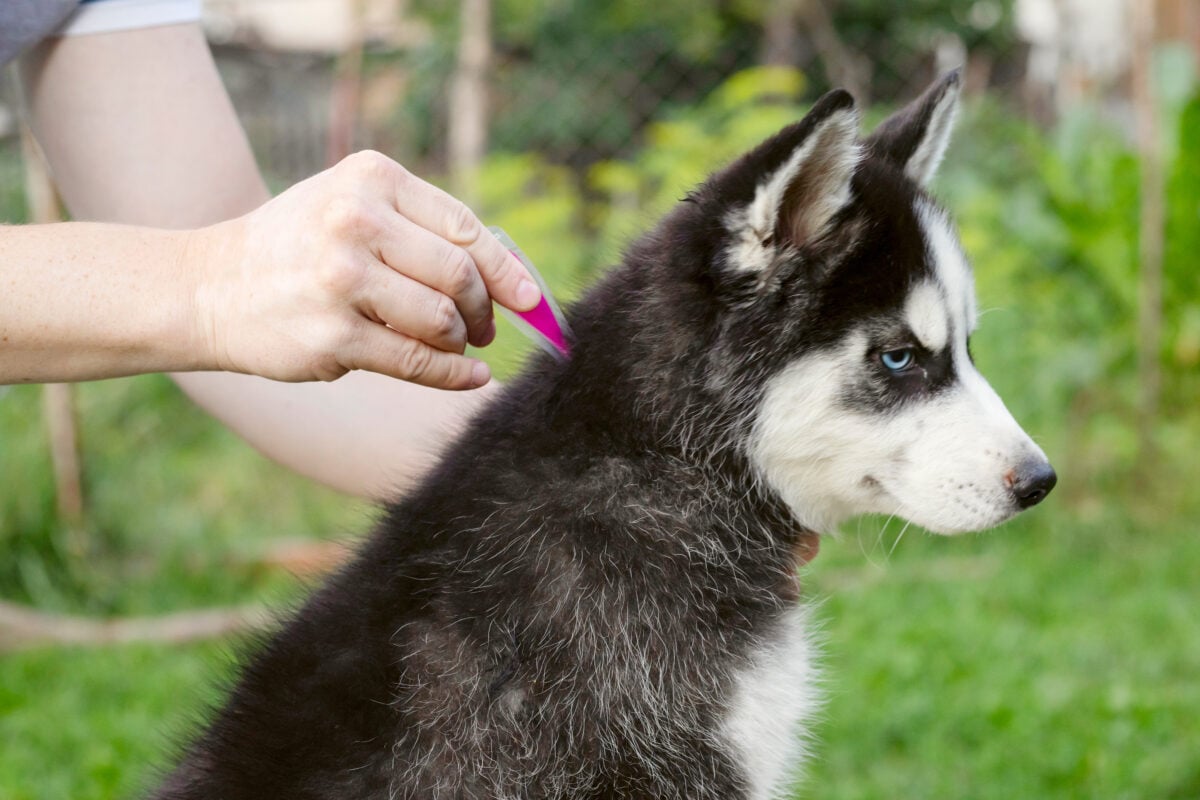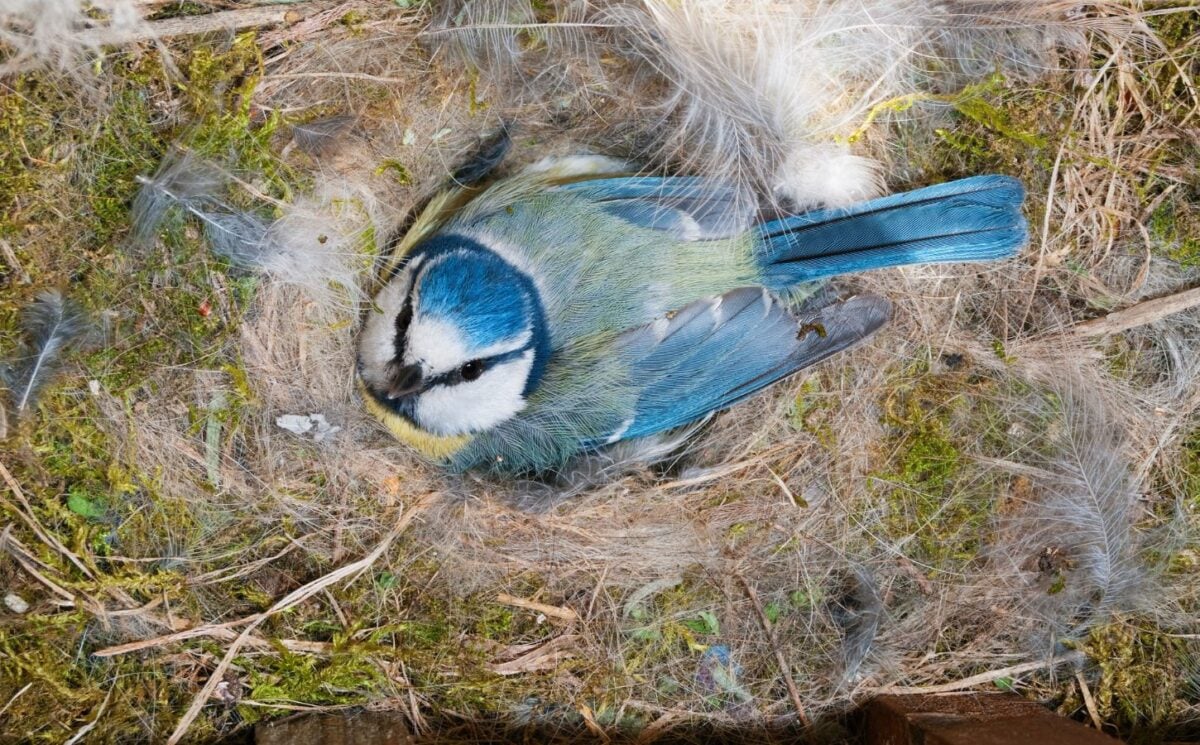Insecticides used in flea and tick treatments for companion animals are ending up in the nests of songbirds and killing chicks, a new study has found.
Some birds use the fur of dogs and cats to line their nests. Researchers from the UK and Switzerland collected 103 fur-lined nests from blue and great tits at the end of breeding season. In the study, published in Science of the Total Environment, they found that every nest was contaminated with between two to 11 types of chemicals, including fipronil and imidacloprid. Fipronil is banned for agricultural use in Europe and the UK and imidacloprid is banned in Europe. But it is still legal to use both in flea treatments for companion animals. The researchers also detected 15 other types of pesticides.
Read more: Cats Are Getting Sick And Dying From Bird Flu In The US
In nests with a higher number or concentration of pesticides, the researchers found a higher number of unhatched eggs or dead chicks. More highly contaminated nests came from urban areas where there was more exposure to treated dog or cat fur.
Call for changes to veterinary drug use

The chemicals are so prevalent in the environment because of the frequency with which they are used and the huge number of animals they are applied to.
Flea and tick treatments containing insecticides are often applied topically to fur, with vets usually recommending they be used monthly. There are around 12.5 million cats and 13.5 million dogs living in the UK. Around 80 percent receive flea treatments at least once a year, according to the study. Given the numbers, “there is clear potential for substantial amounts of these chemicals to enter the environment,” the researchers write.
Research has revealed contamination of rivers in the UK with chemicals from topical flea and tick treatments. They enter waterways when treated dogs swim in river or owners wash their hands after application. Even at low concentrations, the insecticides can kill aquatic wildlife.
Scientists and campaigners have called on the UK government to change its approach to the use of the insecticides. They have urged comprehensive environmental risk assessments of the use of veterinary drugs and for vets to recommend the use of flea treatment only when animals actually have fleas.
Read more: Wildlife Populations Have Plunged 73% In 50 Years






